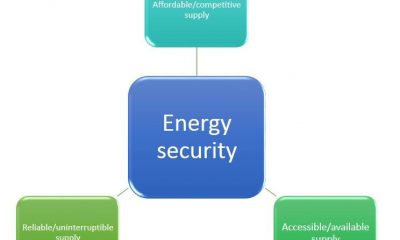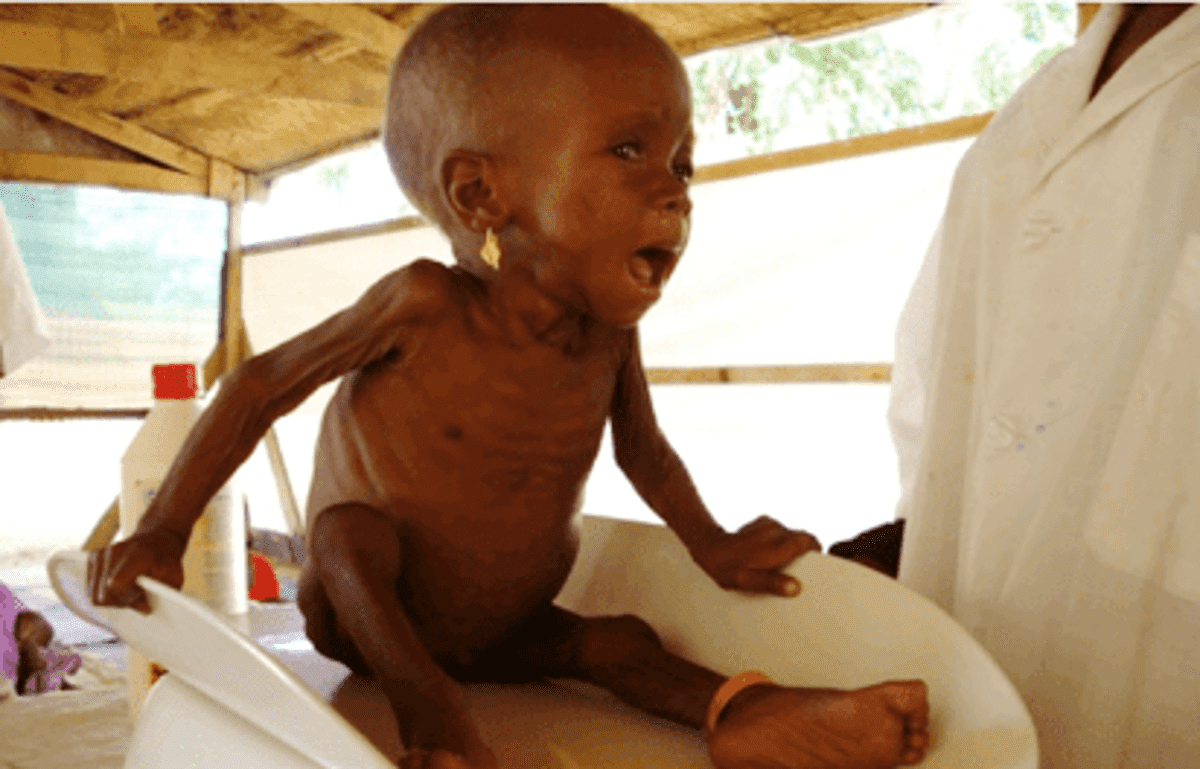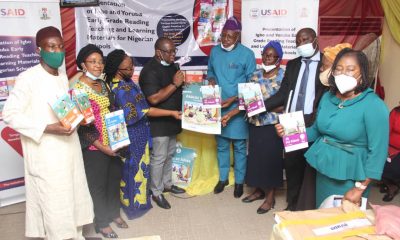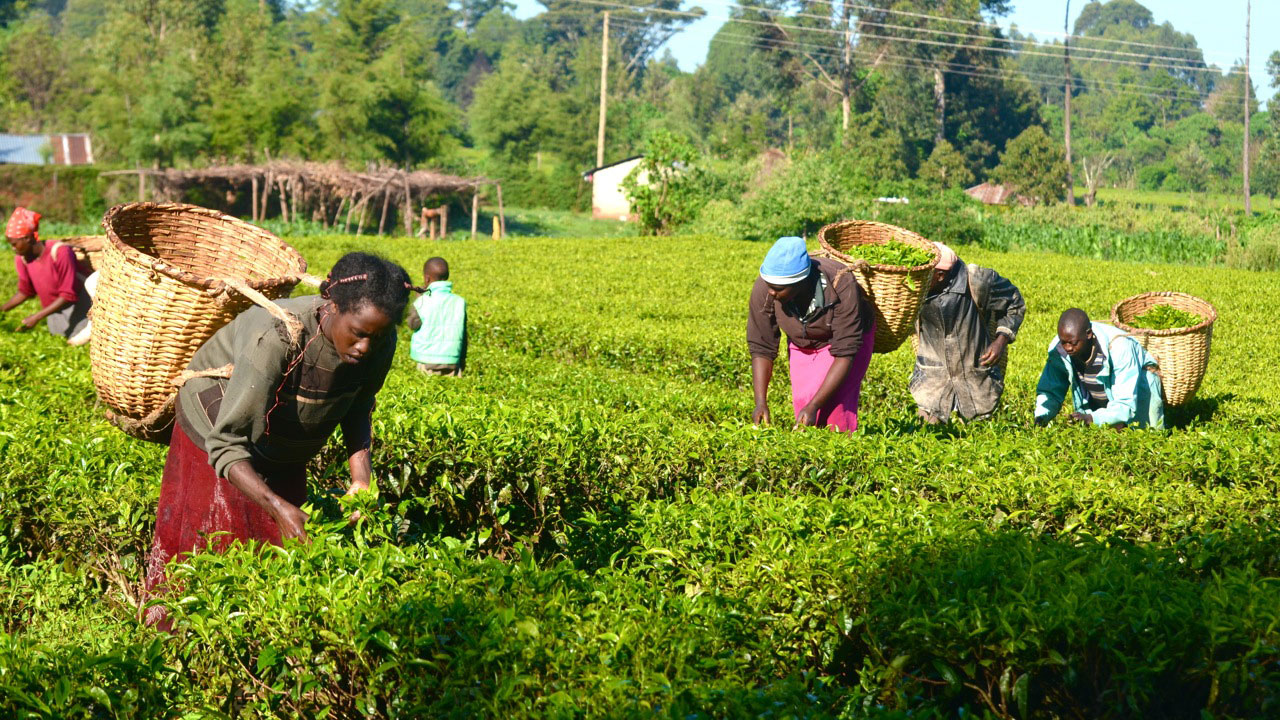General
USAID Earmarks $19.2m for 76,000 HIV Orphaned Nigerian Kids
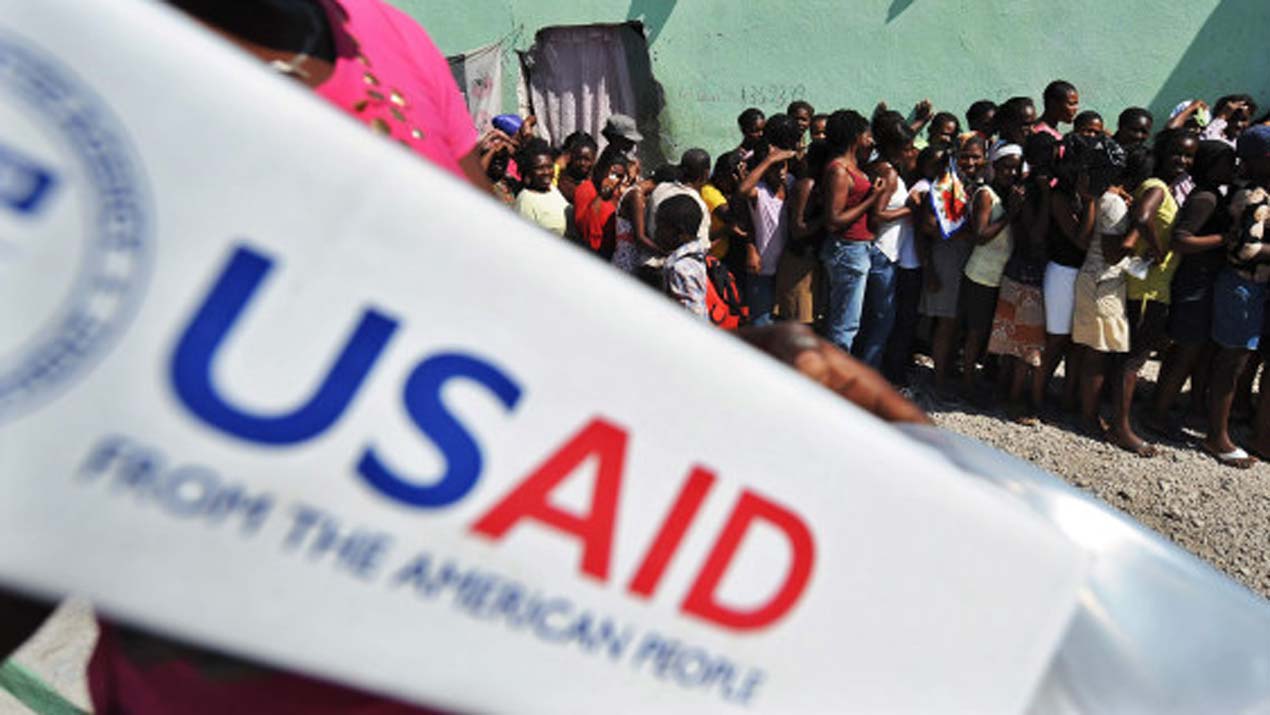
By Adedapo Adesanya
The United States Agency for International Development (USAID) Mission has launched $19.2 million Integrated Child Health and Social Services Award Region 4 (ICHSSAA 4) to support 76,000 HIV Orphan and Vulnerable Children (OVC) in Nigeria.
The agency made this known in a statement by the Public Affairs Department of US Embassy in Abuja, as the activity is set to commence in Bauchi and Adamawa States.
At a virtual launch of the new activity, USAID’s Country Director, Mr Stephen Haykin, revealed that the programme was designed to protect vulnerable or orphaned children in both states.
He said the $19.2 million ICHSSAA 4 activity was among four new USAID OVC programmes that was targeting about 450,000 people in six states.
The USAID chief said that the integrated approach aimed to protect young people from the stigma of association with HIV and eliminate the perception of people living with HIV as anything less than fully productive community members.
He added that this USAID assistance would help Nigeria achieve a healthier, more resilient and educated population through support to children and their families made vulnerable to HIV.
“We hope its successful practices and procedures can be duplicated and scaled up by state and local governments both in Bauchi and Adamawa.
“Over the next five years, ProHealth International will implement ICHSSA 4 in concert with other indigenous non-governmental organisations in Adamawa and Bauchi states.
“To provide much needed HIV prevention, treatment, protection, and care and support services to over 76,000 vulnerable children and their households.
“Working with indigenous community-based organisations, ICHSSA 4 will respond to the specific needs of children living with HIV and their families, survivors of sexual violence, and children and adolescents at high risk of HIV.
“The activity will focus on strengthening families, communities, government systems, and civic institutions that care for HIV infected, affected, and at-risk OVC and adolescents, and help teens stay healthy, stay in school, and lead safe and stable lives.
“The five-year ICHSSA 4 will build on the successes of other past and present USAID investments in partnership with local Nigerian organisations and state governments.
“To continue support OVCs, including the launches of the COVID-19 Emergency Operation Centers (EOCs) in nine states and will help further solidify USAID’s relationship with state counterparts,” he said.
The Bauchi State First lady, Mr Aisha Bala Muhammad, while speaking at the launch, said the project would ensure the provision of quality services for orphans and vulnerable children in a sustainable manner.
“Working with the existing mechanisms and structures, we can better the living conditions of the OVCS in Bauchi state,” she said.
USAID revealed that from July 2014 to December 2019, it funded three similar OVC activities in six states that helped mitigate the impact of HIV and Tuberculosis among over 600,000 OVCs and their families.
It noted that the activities had helped improve health systems at the state and local levels while boosting the capacity of local partner organisations.
It also disclosed that other states to be included in the ICHSAA4 intervention for the next five years include Akwa Ibom, Cross River, Lagos, and Kano.
General
Tinubu Tasks Acting IGP Disu to Restore Peace, Strengthen Security Nationwide

By Modupe Gbadeyanka
The acting Inspector-General of Police (IGP), Mr Tunji Disu, has been charged to do everything within his powers to restore peace and strengthen security across the nation.
This task was given to the new police chief by President Bola Tinubu after being decorated at the State House in Abuja on Wednesday.
Mr Disu was chosen to succeed Mr Kayode Egbetokun on Tuesday. His appointment is expected to be approved by the Nigeria Police Council and confirmed by the Senate next week.
President Tinubu described Mr Disu’s appointment as coming at a critical moment, urging him to rebuild public confidence in the police’s capacity to do their job in collaboration with other security forces.
“I made this decision for you to assume this responsibility. I know your record. I saw the dedication you exhibited while you were in Lagos when I was governor,” the President said.
“Lead firmly but fairly, demand professionalism at every level and ensure that the safety of lives and property remains our highest priority. It’s a daunting challenge. I know you can do it. You have my word, you have my full support,” he added.
Mr Tinubu urged him to advance the security pillars of his administration’s Renewed Hope Agenda. He expressed confidence in the Acting IGP’s discipline, operational experience and leadership capacity.
“Nigeria is challenged with banditry, terrorism and other criminal activities. You will be part of the thinking and innovation to overcome them,” the President said, reaffirming his belief that Nigeria would prevail under a committed leadership.
The President also paid tribute to Mr Egbetokun, who was present with his spouse, saying, “We are a grateful nation. Nigeria appreciates your contribution to maintaining law and order.”
He urged Egbetokun to be ready to offer useful advice to his successor and wished him and his family peace, good health and success in future endeavours, noting,
“You have not succeeded without a good successor. His success will also be part of your legacy.”
Mr Tinubu urged all security stakeholders to work collectively to safeguard lives and property during this critical period.
General
Real Estate Sector Now Safe Haven for Fraudsters—EFCC
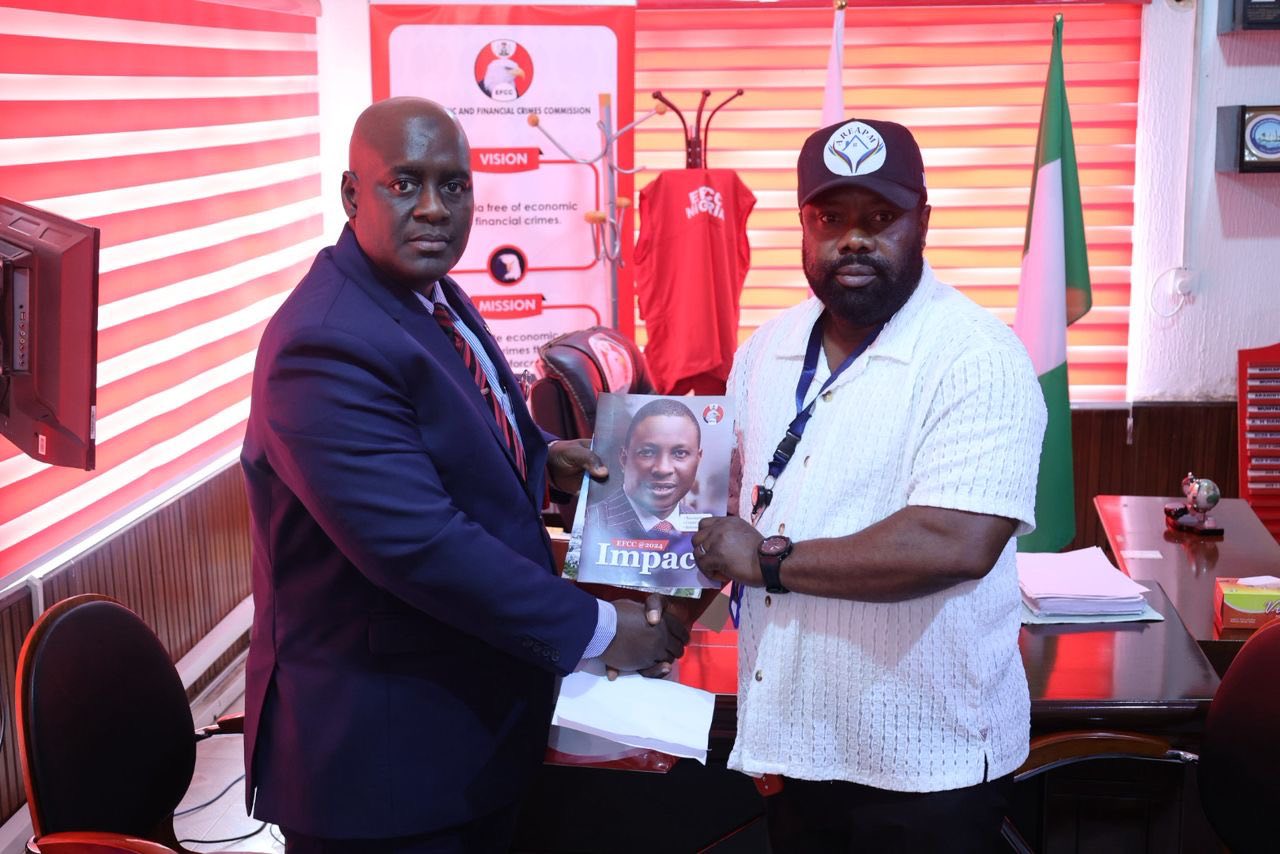
By Modupe Gbadeyanka
The chairman of the Economic and Financial Crimes Commission (EFCC), Mr Ola Olukoyede, has lamented how “people now defraud the government and individuals and invest in real estate.”
He raised this concern when he received the executives of the Association of Real Estate and Property Managers (AREAPM) in Edo State on Wednesday.
The EFCC chief, represented by the acting Zonal Director and Deputy Commander of the Commission, Mr Sa’ad Hanafi Sa’ad, warned real estate managers against money laundering.
“We have noted with grave concern that fraudsters are laundering money and hiding proceeds of crime through real estate and property. People now defraud the government and individuals and invest in real estate,” he stated.
He noted that the agency would continue to discharge its statutory mandate of bringing those who seek to circumvent the system to book.
“As a commission, we recognise the role of Real Estate and Property Managers. Property Managers are designated non-financial businesses and professions.
“So, we expect them to be professionals and uphold the relevant rules and regulations in the discharge of their duties,” he stated, adding that, “The commission will apply the laws when there is a breach of relevant rules and regulations.”
He assured the AREAPM executives of the organisation’s willingness to collaborate with them in dealing with fraud and criminality in the sector.
“We have a unit, the Land and Property Fraud Section, which attends to issues in that regard. So, when you have challenges, you can report to us,” he stated.
In his remarks, the chairman of AREAPM in Edo State, Mr Akpesiri Michael Egbonoje, stated that the essence of the visit was to seek areas of collaboration with the commission and work out ways of combating real estate financial crimes and fraud in the state.
“Part of our strategy is to familiarise ourselves with law enforcement agencies in the state and seek for collaborative relationships. As a body, we cannot do it alone; we need help in the areas of financial crimes.
“We have tried to sanitise the space, but we realised that your agency is at the apex when it comes to dealing with financial crimes.
“We believe that structured collaboration between AREARM and the EFCC will promote financial transparency, investor confidence, and accountability within the real estate sector.”
General
Coroner’s Court Fixes April 14 for Inquiry into Death of Chimamanda Adichie’s Son

By Adedapo Adesanya
The Coroner’s Court sitting at the Yaba Magistrate Court has announced April 14, 2026, for the commencement of an inquiry into the death of 21-month-old Nkanu Nnamdi Esege, son of renowned Nigerian author Chimamanda Ngozi Adichie and Dr Ivara Esege.
Magistrate Atinuke Adetunji fixed the date on Wednesday when the matter came up before the court.
The twin child, Nkanu, died on January 7, 2026, after receiving care at Atlantis Hospital and undergoing medical procedures at Euracare Multi-Specialist Hospital in Lagos.
The child was initially admitted to Atlantis Hospital in Lagos for what was described as a worsening but initially mild illness.
The family had sought initial care as arrangements were being made to transfer him to Johns Hopkins Hospital in the United States. Atlantis referred him to Euracare for pre-flight diagnostic procedures, including an MRI, lumbar puncture, and insertion of a central line.
However, the child passed away following the procedures.
His parents have alleged medical negligence and professional misconduct in connection with his death.
According to a leaked internal message sent privately to family members and close friends at the time, Ms Adichie blamed the staff of Euracare Multi-Specialist Hospital, located in Victoria Island, Lagos, for causing the demise of the lad.
“My son would be alive today if not for an incident at Euracare Hospital on January 6th,” she wrote in a broadcast message confirmed later on.
“We have now heard about two previous cases of this same anesthesiologist overdosing children. Why did Euracare allow him to keep working? This must never happen to another child,” she also wrote in the lengthy message.
The 48-year-old writer had her first child, a daughter, in 2016. In 2024, her twin boys were born using a surrogate.
-

 Feature/OPED6 years ago
Feature/OPED6 years agoDavos was Different this year
-
Travel/Tourism10 years ago
Lagos Seals Western Lodge Hotel In Ikorodu
-

 Showbiz3 years ago
Showbiz3 years agoEstranged Lover Releases Videos of Empress Njamah Bathing
-

 Banking8 years ago
Banking8 years agoSort Codes of GTBank Branches in Nigeria
-

 Economy3 years ago
Economy3 years agoSubsidy Removal: CNG at N130 Per Litre Cheaper Than Petrol—IPMAN
-

 Banking3 years ago
Banking3 years agoSort Codes of UBA Branches in Nigeria
-

 Banking3 years ago
Banking3 years agoFirst Bank Announces Planned Downtime
-

 Sports3 years ago
Sports3 years agoHighest Paid Nigerian Footballer – How Much Do Nigerian Footballers Earn


